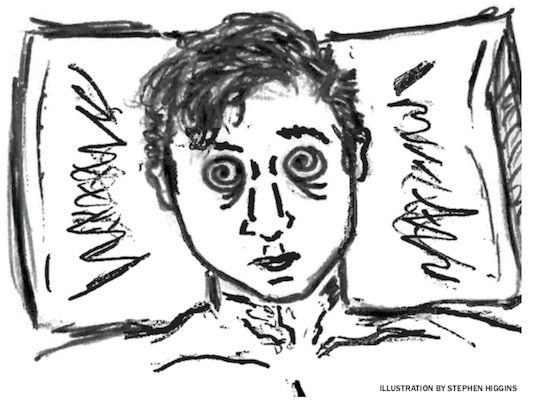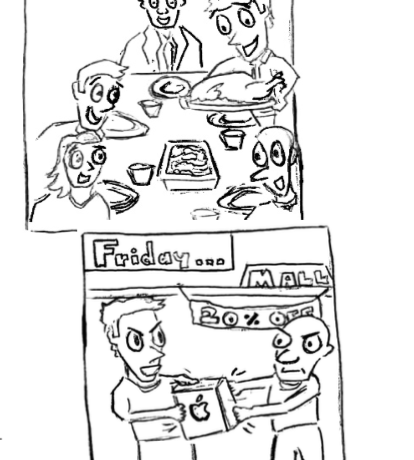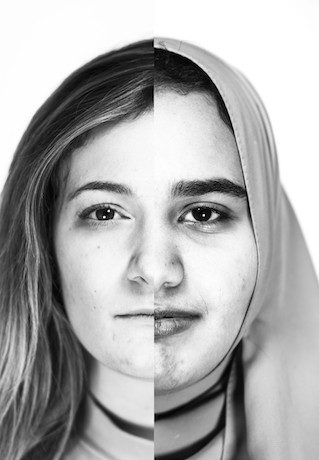
The moment I was introduced to Feiza, my host mother, she was simultaneously carrying a six-month old baby and trying to wrangle a two-and-a-half year old running through everyone’s legs, I didn’t know what I had gotten myself into. I greeted her with “a-salam-alaikum.” She replied “alaikum-salam,” kissing me on both cheeks and wrapping me in a big hug. I fumbled over the little Arabic I learned, clenching my Arabic notebook as a crutch for my failing awkwardness. Little did I know how quickly my time with my host family would fly by.
Last spring I studied abroad in Rabat, Morocco. The Presidential Primary was still flooded with candidates. I never thought Donald Trump would become the Republican nominee, let alone the President of the United States. Ten months later, one week into his presidency, Trump threw the country into turmoil with a series of executive actions, including his promised “Muslim Ban,” which has been challenged by a federal judge, temporarily rendering it ineffective until it can be ruled upon at a later date.
A year ago I was welcomed with open arms by the people who are targeted by this ban; my host family was Muslim. My father was a devout Muslim who prayed five times daily. My mother wore hijab out of the house.
The majority of Moroccans, 98 percent, identify as Muslim. Mosques are on every corner, the call to prayer rings out five times a day. It took some getting used to coming from a secular country, but it is one of the things I miss most. There was a profound sense of peace in the country where the religion seemed to be as much of a culture as a creed.
The first weekend in Rabat my friends and I visited an art museum. After wandering around the exhibits my friends and I regrouped in the lobby, questioning what was next. A little Moroccan man in a suit and tie was standing nearby taking photos of us. When we all turned our heads to look at him he quickly introduced himself as Mehdi Qotbi, the President of the National Museum Foundation in Morocco.
He was ecstatic American students were visiting his museum. He asked us about our time in Morocco so far. When we told him we were journalism students he even gave us his contact information in case he could be of any help further down the road.
He also made sure to slip in the fact that we were welcomed in Morocco, and that Moroccans did not want to harm us. That sentiment shocked us at first, it had never even crossed our minds, but we realized that this was coming from the news of Donald Trump and his “Muslim Ban.”
As the semester went on I faced more and more uncomfortable situations where I had to explain what was going on in American politics. I had conversations about religion with my host family where I explained that we did indeed have people of all religions and the majority of Americans welcomed people of all religions. In an interview with officials from the Moroccan National Human Rights Council, the question of Donald Trump becoming president was brought up in an elevator ride that seemed to take years.
As part of my journalism track, my final project was on Syrian refugees’ reception in Morocco. Moroccans were welcoming, but the government was not. Though many had made it to Morocco, they were left in legal limbo of not being granted refugee status and the legal papers need to work, travel and own property.

I was meeting Syrian refugees with a friend. One woman stood outside of her home hanging laundry and she said that she just missed her washing machine from home. We came across a man, Riad Mustapha, who invited us into his home. He told us stories of how hard the refugee camps were, especially with Lebanon’s cold winter, and about their journey across North Africa, eventually making it to Morocco. His wife and two children made the trek with him, leaving behind his three oldest children because it was too expensive.
Another man I met, Ghassaan Abou Salehm, had been in Morocco since the 1980s after fleeing Syria in 1971 for political reasons. With the recent issues he has been helping Syrians that made it to Morocco settle in and get the resources they need. We interviewed him for our project but as he talked I was lost, because it got heated and the translator couldn’t keep up. Then Salehm turned to me, breaking from his Arabic to say “America, your country. Donald Trump, he refuses any Syrians in America, but in Canada the Prime Minister goes to the airport to welcome Syrians.”
Caught off guard, I didn’t know what to say besides, “Not all Americans think like that.” However, that didn’t mean much, nor should it. Trump garnered so much popularity because so many people have similar views, with no one from within his party really standing up to this xenophobic rhetoric.
The people I met opened up, and shared their stories, even invited me into their homes. Conversations over mint tea and pastries lead to more friendships, and understanding of cultures from me to them, and them to me. The countless adventures I was invited on where people opened up to my friends and I are the everlasting treasures I have from my time abroad.
There is nothing quite like the hospitality I got while in Morocco from people that were complete strangers.
I’m heartbroken knowing that if they came to America they wouldn’t have the same welcome.


